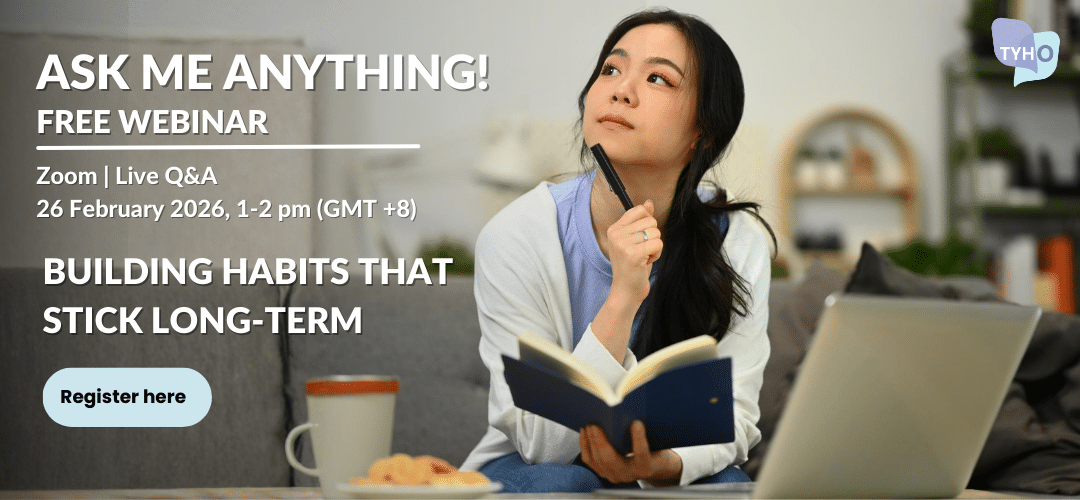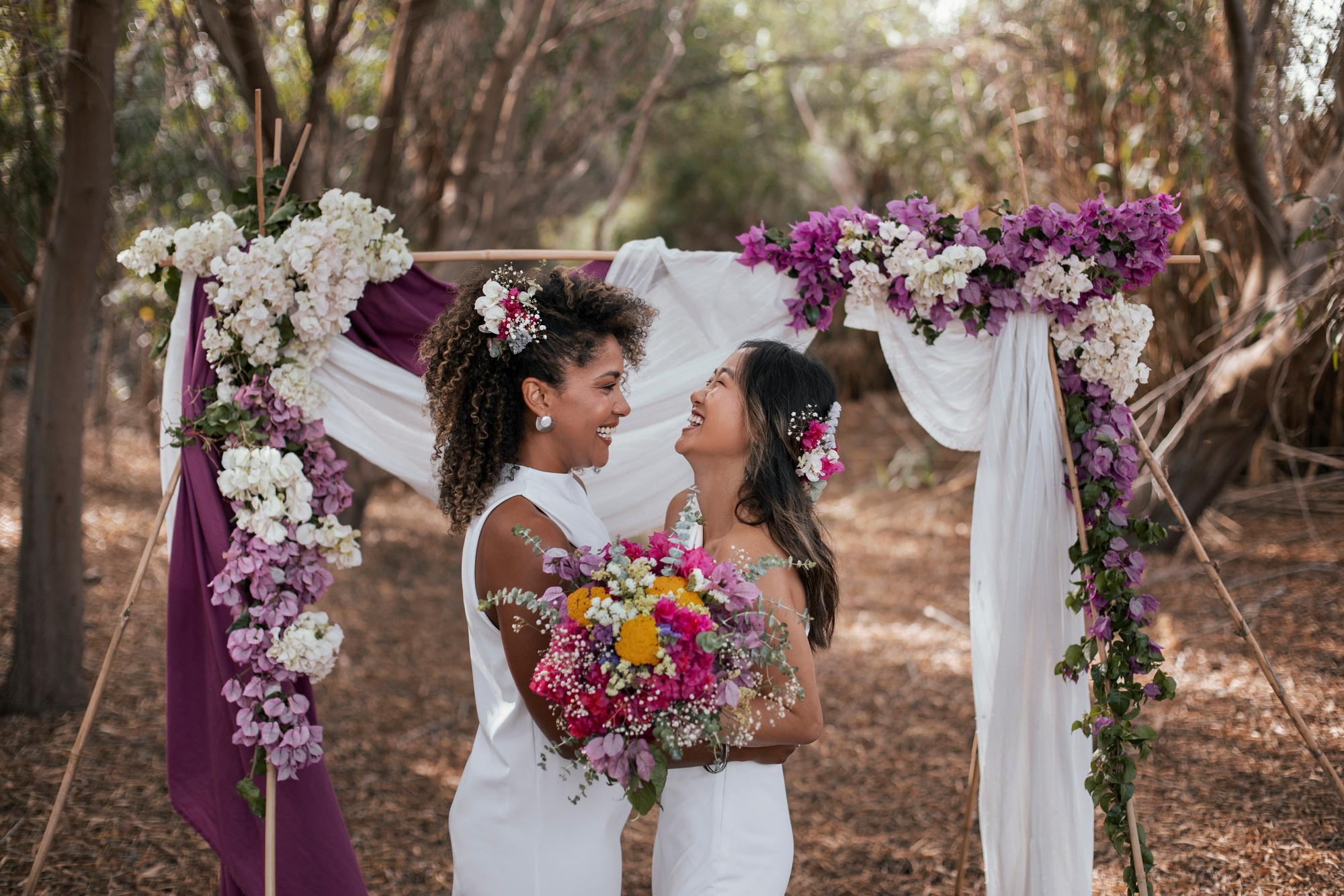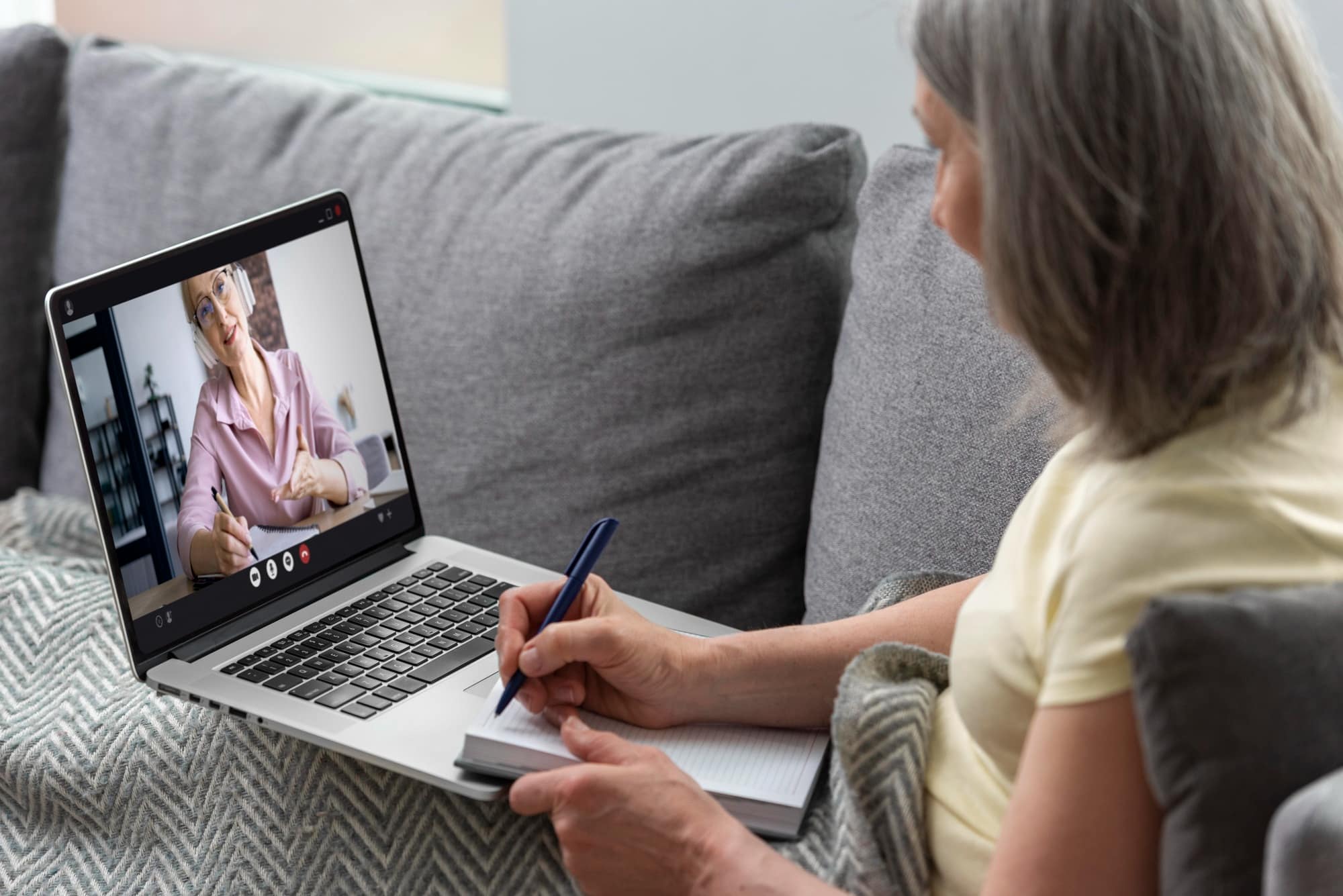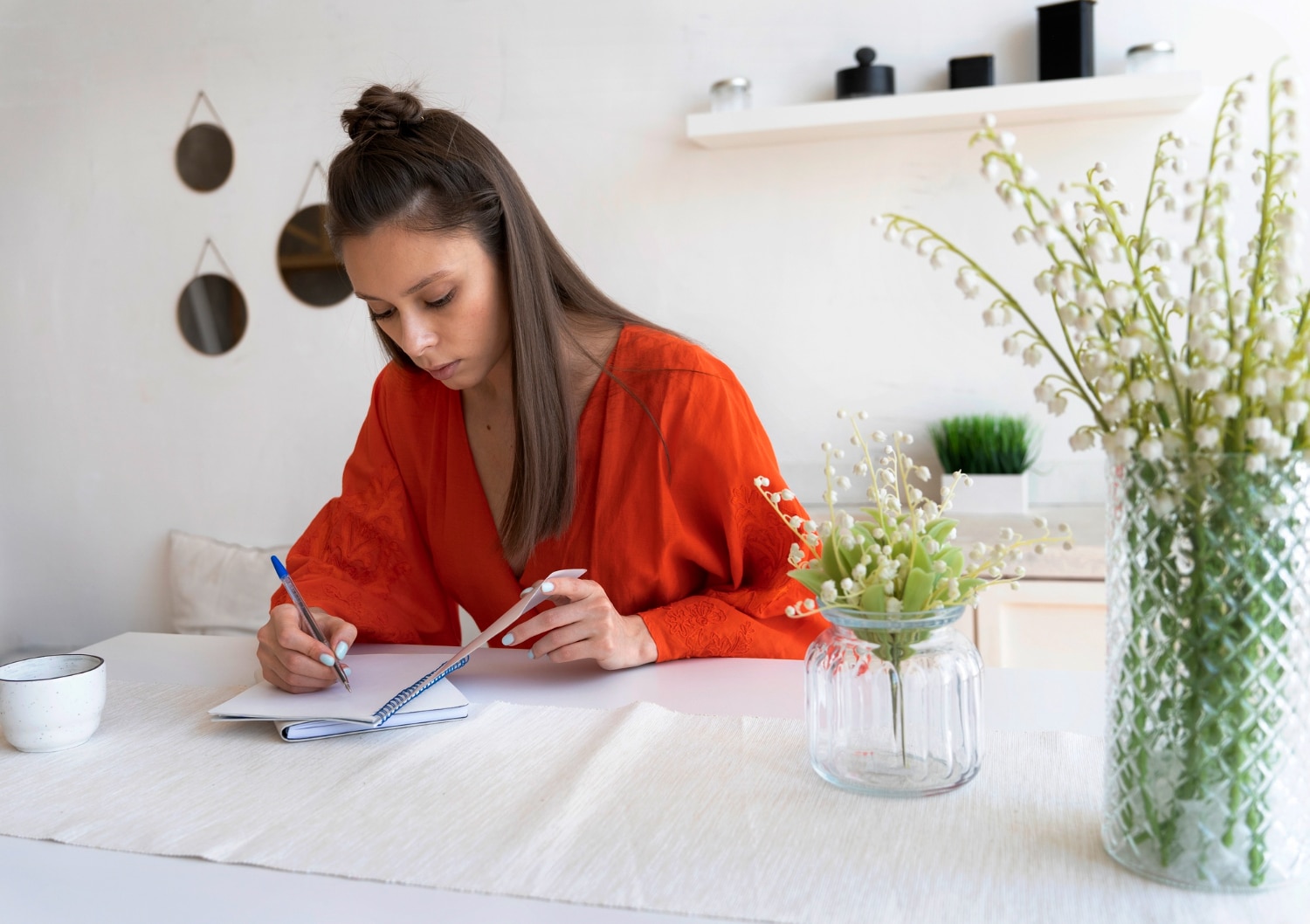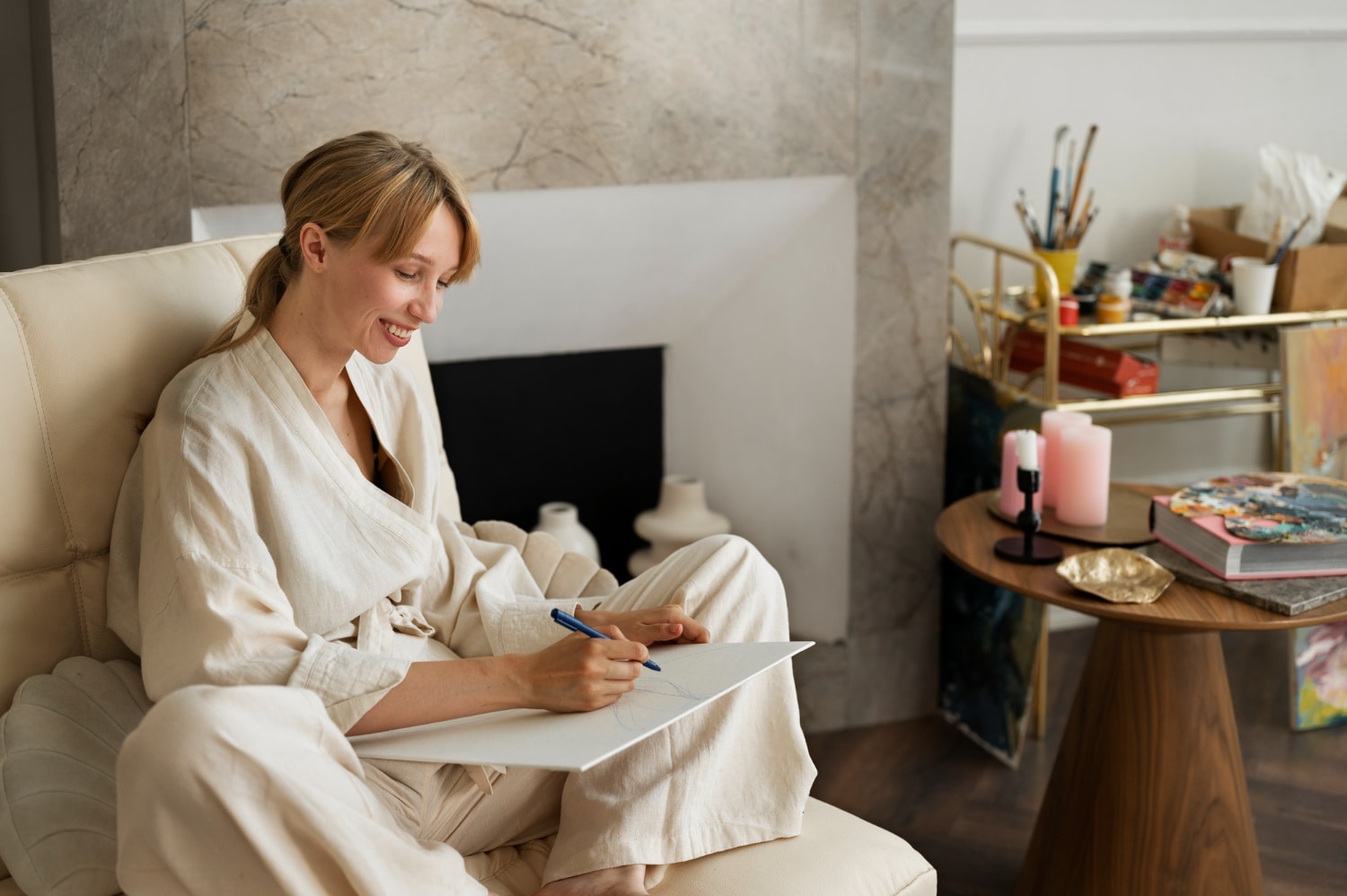- Published on 30 June 2025

Glenn - Professional Counsellor
Master of Counselling (Monash University, Singapore); Gottman Method Couples Therapy (Level 1); Singapore Association for Counselling (SAC), Provisional Clinical Member
Glenn believes that every person deserves the following things: the freedom to express, the space to be heard, the time to heal, the ability just to be, and the belief that one can grow.
She works with older adolescents, individual adults and couples from diverse backgrounds over a wide range of issues, including relationship problems, depression, anxiety and grief.
Glenn adopts a collaborative and multimodal approach as she believes there is no one-size-fits-all in therapy. She is trained in Gottman Method Couples Therapy and Dialectical Behavioural Therapy (DBT), and incorporates elements of Schema Therapy and Mindfulness practices into her sessions.
She currently works as a Therapist with Talk Your Heart Out (TYHO). Her complete profile can be found here.
Did you know that couples who never argue report 35% lower relationship satisfaction levels than those who do?
Statistics like these reveal the truth: conflicts, arguments, and fights are a normal part of healthy relationships.
It’s not about never fighting – it’s about how we do it.
Read on to explore a written interview with one of our expert couples and individual counsellors, Glenn, on managing conflict in romantic relationships.
1) How do I know if we’re just having normal conflict or if this has turned toxic?
Healthy conflict involves disagreement, but there is also respect, repair, and a sense of safety present.
Toxic conflict often includes contempt, blame, stonewalling, or feeling afraid of your partner’s reactions.
A key sign of a healthy relationship is not the absence of conflict, but the presence of respect, accountability and repair. If you’re consistently left feeling unheard, fearful, or disrespected, it may be time to reassess the dynamic.
2) Is there a way we can prepare ourselves before a fight so we handle it better?
Yes, preparation can help prevent fights from escalating out of control. Here are some ways you can do that:
- Try setting ground rules during calm moments (eg no yelling, no name-calling, take breaks if overwhelmed).
- Practice pre-fight check-ins: pause when tension rises, name what you’re feeling, and agree on a respectful way to talk about it.
3) How can I calm myself down and stay present during an argument?
When we argue, stress responses are bound to show up. When you shut down or cry, your body is trying to protect you.
Before conversations, practice grounding techniques such as:
- Deep breathing
- Holding something tactile
- Planting your feet on the floor
During the argument, if you feel overwhelmed, it’s okay to say, ‘I need a few minutes to calm down so I can meaningfully engage.’
Then return when you’re ready. Over time, you’ll build tolerance for staying with tough emotions.
4) How do we work through conflict when one of us pulls away and the other wants to fix things right away?
Recognising this dynamic is very important. Let’s call it the pursuer-distancer dynamic:
The pursuer needs connection to feel safe; the distancer needs space to regulate their emotions. Neither is wrong.
The key is timing and reassurance. The person who needs space should commit to returning to the conversation within a set time (eg ‘Let’s talk in an hour’), and the pursuer needs to respect that boundary.
The one needing connection can focus on self-soothing while waiting, knowing they’re not being abandoned.
5) How can we both cope better after a fight so we don’t feel so disconnected?
Post-conflict repair is essential. After a fight, try a reconnection ritual – a small gesture that signals you’re still a team, such as:
- A hug
- A shared activity
- Or simply saying, ‘I still care about you, even when we argue’
Give each other space to process, but always commit to coming together to reflect on what happened and what each person needed. This bridges the gap between different emotional recovery speeds and prevents resentment from building up.
6) How do we deal with conflict when one of us is emotional and the other is more practical?
Recognise that both emotional expression and problem-solving are valid needs.
Validate each other’s approach through verbal assurances like: ‘I know you need to express your feelings’, or ‘I know you want to find a solution.’
Then take turns. Begin with emotional sharing, using ‘I feel’ statements, and ask the practical partner to simply listen.
Then switch gears to brainstorming solutions together. Respecting both styles builds empathy and balance.

7) What are some small habits or changes we can make to fight less and stay close?
a) Daily Check-ins
Never underestimate the power of asking your partner about how they are or how their day has been.
b) Be Intentional and Show Appreciation
Even a small thank you when it comes to something like doing the dishes or grabbing you a glass of water goes a long way.
c) Relationship Talk
Set aside time to talk meaningfully about how the relationship is going.
d) Pause and Reflect
Before reacting, ask yourself, ‘What’s really bothering me?’
These small habits can build emotional safety and reduce conflict over time.
8) How can I initiate healthier conversations where both of us can take responsibility and genuinely listen?
It’s always helpful to consider timing and setting when choosing to initiate conversations. No one likes to be caught off guard.
Approach the conversation with curiosity about your partner’s perspectives, instead of approaching with blame.
Invite your partner to share their perspective, and mutually reflect, while also acknowledging your part in the situation.
If you find yourself feeling defensive, be curious about that. ‘Why is this hard for me?’ This can open up both your perspectives and promote deeper honesty and less reactivity.
4 Therapist-Vetted Practical Exercises to Manage Relationship Conflicts
According to Dr. John Gottman, happy and fulfilled couples report engaging in an average of one to two conflicts per month.
The reasons for relationship conflicts can arise from a range of factors, such as misalignments in:
- Communication styles
- Emotional needs, connection & love languages
- Finances & priorities
- Sex & intimacy
- Division of labour & roles within the relationship
- Transitioning life stages
Misunderstandings and conflicts may also stem from common relationship pitfalls like:
- Making assumptions or engaging in ‘mind reading’
- Ignoring emotional flooding
- Not making repair attempts
- Taking on a combative approach
- Engaging in The Four Horsemen: Defensiveness, stonewalling, contempt, criticism
Below are four therapist-vetted practical strategies to go from ‘I don’t know how to resolve this!’ to ‘We can get through this as a team’:
1) Reframing: Shifting from Combat Mode to Collaborative Mode
When dealing with a conflict, it’s important to frame ourselves the right way, the healthy way.
In the heat of the moment, when emotions take control, it can be easy to go into combat mode – viewing the conflict as you versus your partner.
However, in order to de-escalate and engage in healthy conflict resolution, it’s essential to shift from combat to collaborative mode.
The illustration below shows a quick differentiation between combat and collaborative modes:

2) Time-Outs: Taking a Break to Reflect & Reset
There’s immense power in a pause. Research shows that even a five-second pause can help de-escalate an argument.
During a conflict, if you find your emotions slipping out of control, take a short break. This can be as short as taking a deep breath or as long as a few hours.
Remember to voice your need for a time-out and commit to returning to the conversation at a set time.
Here are some things you can do during a time-out:

3) Verbal Repairs: Using Your Words to Repair & Reconnect
When a conflict does get out of hand, anger can build up, and you may say things you didn’t really mean or be harsh with your words. It’s important for both partners to make repairs once they realise this.
Words and actions are powerful tools for showing affection and reconnecting with your partner during or after an argument.
Remember that you’re negotiating with someone you love and care about, not fighting against an opponent.
Below are some practical examples of verbal repairs:

In addition to using verbal repairs, you can also show your affection through actions like:
- Reaching out to hold their hand
- Getting them a glass of water
- Getting them tissues
- Asking them what they need
- Offering them a hug
However, be mindful of their boundaries and always check whether they’re comfortable with such acts of affection in the moment.
4) Mindful Speaking & Reflective Listening: Talking and Hearing with Respect
During arguments or heavy discussions, it’s crucial to both speak mindfully and listen actively and reflectively.
By mindful speaking, we mean:
- Using ‘I’ statements – focus on what you feel or need, not criticising or judging your partner.
- Asking questions to understand, not to control, test, judge or shame.
- Expressing a positive need, and not just focusing on the complaint.
Reflective listening is the act of ensuring your partner feels heard and understood, not merely listened to. When we engage in reflective listening, we become more empathetic, less defensive and open to connection and understanding.
Here’s what reflective listening can look like:

Conclusion
Once again, we’d like to reiterate that it’s not about never fighting – it’s about how we fight.
Conflict can often be an opportunity to collaborate and connect more deeply as partners. By learning to engage in conflicts in healthy ways, you can strengthen your bond and grow closer to your partner.
Therapy in Singapore can be a safe and guided avenue to navigate relationship conflicts. Here are some key ways a therapist can help you with this:
- Identifying, analysing and understanding the root causes of conflict
- Setting healthy boundaries and holding space for each other
- Navigating differences or mismatches in values, beliefs, and expectations
- Learning practical conflict de-escalation, resolution and reflection strategies, tools and techniques
- Working together as a team and reconnecting emotionally
Click here to book your couples counselling session.💜

